Blog Post
Posted by Dion Todd January 21st, 2018 4,964 Views 0 Comments
Today we are going to continue our Bible study and we will be studying Luke Chapter 19 in depth. You can follow along in your own Bible if you like. I will be reading from the World English Bible because it is copyright free.
After you finish this study, please take the accompanying quiz to test your knowledge. Thanks to everyone that has participated so far. Let’s get started:
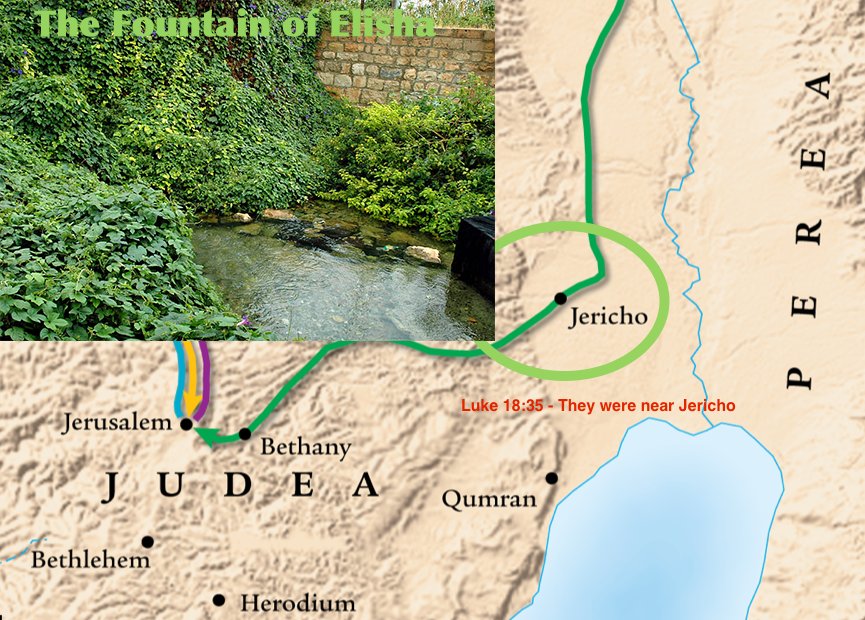
Jericho is one of the oldest cities in the world with remains dating back to over 10,000 years old. One of the reasons for this is that there is a spring of fresh water there that flows out of the ground. It is called the fountain of Elisha, and believed to be the one that he healed by throwing salt into it in 2Kings 2:18.
Jericho was a prosperous city. Barclay wrote that “It had a great palm forest and world-famous balsam groves which perfumed the air for miles around. Its gardens of roses were known far and wide. Men called it ‘The City of Palms.’ Josephus called it ‘a divine region,’ ‘the fattest in Palestine.’ The Romans carried its dates and balsam to worldwide trade and fame.” That is where this chapter took place.
Luke Chapter 19 beginning in verse 1 reading from the World English Bible: He entered and was passing through Jericho. 2 There was a man named Zacchaeus. He was a chief tax collector, and he was rich.
Zacchaeus was not just a tax collector, but a chief tax collector in a very prosperous city, so he would have been very wealthy. Oddly enough, the name Zacchaeus means “pure one” when he was anything but that, before he met Jesus. Tax collectors like him were hated by the Jews, who had to pay them taxes because of a system called “tax farming.”
The Roman empire had conquered Israel and they auctioned the job of collecting taxes in their provinces to the highest bidder. The person who won the bid, paid the full tax price for that area and season in advance, then they were authorized to go and collect the tax money or valuable goods from that province. Whatever they charged above the normal rate, Rome considered the tax collector’s salary, so the tax collectors charged the people as much as the market could bear. It became a very corrupt system and tax farming is believed to have contributed to the fall of the Roman empire.
In Luke 3:13, when the tax collectors came to John the Baptist, and asked how they could get right with God, he told them collect no more than what is appointed for you. If you were a tax collector, and you were rich, you were a rogue. The title “chief tax collector” is not found anywhere else in scripture, but Zacchaeus is thought to have been head of the local taxation department. The apostle Matthew was a tax collector when Jesus called Him in Capernaum. The pharisees called Jesus “a friend of tax collectors and sinners” (Matthew 11:19).
3 He was trying to see who Jesus was, and couldn’t because of the crowd, because he was short.
Zacchaeus was a short man, and he could not see over the crowd who were lining both sides of the road in order to see Jesus pass by. Also being small in size, we can imagine how Zacchaeus was mocked and hated by others, like those who were blocking his way today - and how he returned the favor by increasing their taxes.
4 He ran on ahead, and climbed up into a sycamore tree to see him, for he was going to pass that way.
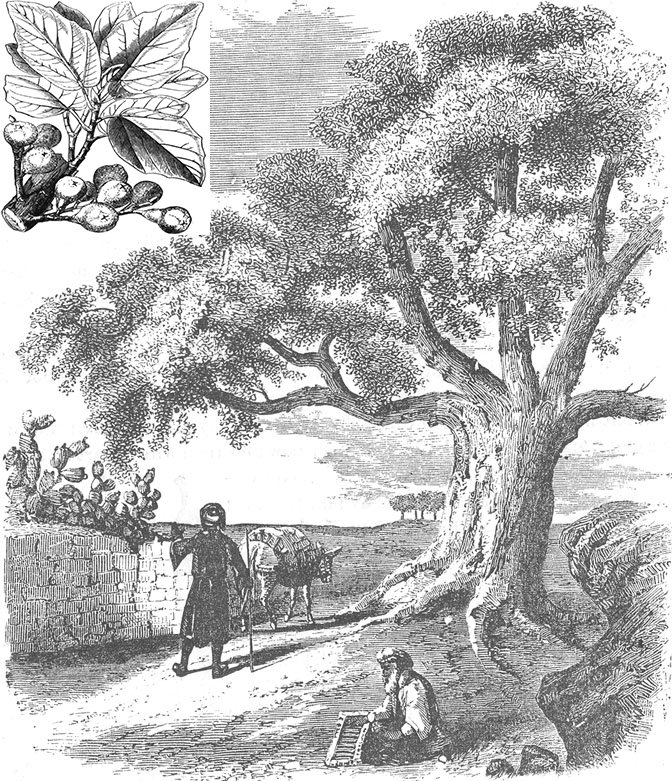
Zacchaeus wanted to see Jesus so badly that he put aside the pride and dignity of a rich man, and climbed up that tree like he was a little boy. Jesus had said, you cannot enter the kingdom of God unless you come as a child, and, unknowingly, Zacchaeus fulfilled this. He did not mind being laughed at, if he could only see Jesus.
5 When Jesus came to the place, he looked up and saw him, and said to him, “Zacchaeus, hurry and come down, for today I must stay at your house.” 6 He hurried, came down, and received him joyfully.
Jesus came to the place where he was, looked up and called Zacchaeus by name and said today I must stay at your house. It had probably been a long time since someone had spoken his name without it sounding like a curse word. In John 10:3 Jesus said that He calls His sheep by name, and they know His voice. Zacchaeus was a lonely despised man, but he was one of those sheep.
7 When they saw it, they all murmured, saying, “He has gone in to lodge with a man who is a sinner.”
The crowd was greatly displeased that Jesus went to eat with Zacchaeus, who was apparently very good at being very bad, but Zacchaeus was overjoyed. He would have never thought himself worthy of a visit from Jesus, but Jesus invited Himself to his house. The people around murmured, obviously out of envy. Jesus had said in Luke 5:32 “I have not come to call the righteous, but sinners, to repentance” and that is how He lived His life. We should not be surprised.
Jesus invited Himself to spend time with Zacchaeus, the hated outcast. The early church was despised for its acceptance of outcasts, but the early Christians regarded this as something glorious, not shameful.
Paul wrote in 1Corinthians 1:26-27 (WEB) “For you see your calling, brothers, that not many are wise according to the flesh, not many mighty, and not many noble; but God chose the foolish things of the world that he might put to shame those who are wise. God chose the weak things of the world that he might put to shame the things that are strong.”
God chooses to use the weak, the foolish, and the despised, which was most of the of the early Christian church. Acts 4:13 tells us that when the rulers, elders, scribes, Annas the high priest, and others examined Peter and John, they saw their boldness and perceived that they were uneducated and ignorant fishermen, and they marveled. They recognized that they had been with Jesus. Peter and John were standing there with a man they had miraculously healed, who had been crippled for over 40 years, and they could say nothing but “wow”. God chose the opposite of man’s power, to display His power.
8 Zacchaeus stood and said to the Lord, “Behold, Lord, half of my goods I give to the poor. If I have wrongfully exacted anything of anyone, I restore four times as much.”
After spending a little time with Jesus, Zacchaeus was convinced and convicted that he needed to change. He stood up and said he would give half of his goods to the poor, and if he had stolen from them, he would restore four-fold. This number may have been based on Exodus 22:1, the restitution for the theft of a sheep was four sheep.
Zacchaeus was drawn to Jesus, who accepted him just as he was and came to his house. After spending sometime with Jesus, his heart began to change, soften, and he began to put God’s will first automatically, and joyfully, for that is how it works. You come to Jesus just as you are. As you begin to know Him better, your life will begin to change to line up with His will. There are not a lot of words passed back and forth; you just know that you know, and He gives you the grace to change. Never think that you will clean yourself up first, then come to Jesus, for it does not work like that. When you come to Him, that is when things begin to change.
9 Jesus said to him, “Today, salvation has come to this house, because he also is a son of Abraham. 10 For the Son of Man came to seek and to save that which was lost.”
Zacchaeus was lost, and Jesus came to seek him out. He was able to do what the rich young ruler could not, and he joyfully gave away half of his wealth, for with God all things are possible when we follow the gentle urging of the Holy Spirit. Zacchaeus had a change of heart, and Jesus said that salvation had now come to his house.
11 As they heard these things, he went on and told a parable, because he was near Jerusalem, and they supposed that God’s Kingdom would be revealed immediately.
Jericho is not far from Jerusalem, and as Jesus nears the city, the disciples and others expect Jesus to be the political savior of the nation. The Roman empire was ruling over Israel, and they expected the Messiah to run them out. Also Passover was coming soon and according to Josephus, there would be more than two million pilgrims in Jerusalem shortly, and the air would be heavy with the sense that something big might happen.
It is interesting to note that Jesus did not preach politics. He did not preach against the evil Roman invaders who were occupying Israel at the time. He said “render to Caesar what is Caesar’s (Matthew 22:21). Instead Jesus focused on the kingdom of God, healing, delivering, teaching, and occasionally driving hypocrites out of the temple with a whip (John 2:15). Jesus was neither a republican, nor a democrat. In all of His teachings, He left the politics to the politicians. I cringe when I see a preacher behind the pulpit yelling about politics and telling you how to vote, for that is not how Jesus did it. We should always pray and follow the Holy Spirit’s guidance.
12 He said therefore, “A certain nobleman went into a far country to receive for himself a kingdom and to return.
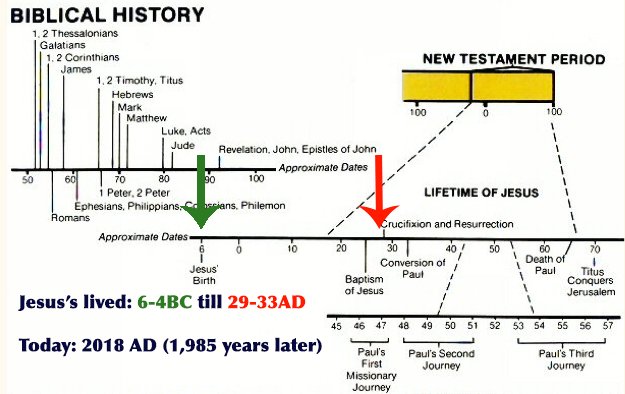
In 4 BC, around the year Jesus was born, Archelaus, the son of Herod, went to Rome to receive his part of the kingdom, after his father Herod died. Herod’s empire formed part of the Roman Empire, so he needed their confirmation. A group of Jews also went to Rome to dispute his claim to kingship, but the emperor appointed Archelaus as ruler over them anyway.
13 He called ten servants of his and gave them ten mina coins, and told them, ‘Conduct business until I come.’
In the parable of the talents in Matthew 25, each servant was given a different amount. Here they are all given the same amount, and it is a large sum of money they are trusted with. A mina coin was worth 100 days work for common labor, like picking fruit. He gave ten servants, one mina each, so ten mina coins total. They were to do business, to use the resources that the master gave them, until He returned.
14 But his citizens hated him, and sent an envoy after him, saying, ‘We don’t want this man to reign over us.’
The citizens lived in the area of the country that he ruled, and they hated him. These are not the servants who received the minas, but another group. In this parable, the nobleman did nothing wrong, but some of the citizens there hated him anyway because they had a heart full of hate. They did not want this king to rule over them.
In the same way, everyone on earth will one day stand before God and give an account for the life they lived here. Some are faithful servants working for Him. Others are mockers that do not believe that He exists and do not “want Him to rule over them.” In the end, it does not matter whether you believe in God or not, but you will stand in front of Him. The same way that you don’t have to believe in gravity for it to continue to exist.
15 “When he had come back again, having received the kingdom, he commanded these servants, to whom he had given the money, to be called to him, that he might know what they had gained by conducting business. 16 The first came before him, saying, ‘Lord, your mina has made ten more minas.’17 “He said to him, ‘Well done, you good servant! Because you were found faithful with very little, you shall have authority over ten cities.’
When the nobleman returned, he called his servants to give their accounts. The first had increased by 1,000%.
18 “The second came, saying, ‘Your mina, Lord, has made five minas.’ 19 “So he said to him, ‘And you are to be over five cities.’
The second had increased by 500%. The first two were both humble servants as well and took no credit, but only said “Your mina has gained…” Both of them are promoted and given cities to rule over according to their increase.
20 Another came, saying, ‘Lord, behold, your mina, which I kept laid away in a handkerchief, 21 for I feared you, because you are an exacting man. You take up that which you didn’t lay down, and reap that which you didn’t sow.’
The third man was called and had done nothing with his mina, but hid it away in a napkin. He said that he was afraid (21). He described his master as a severe man who expected him to get blood out of a stone.
22 “He said to him, ‘Out of your own mouth I will judge you, you wicked servant! You knew that I am an exacting man, taking up that which I didn’t lay down, and reaping that which I didn’t sow. 23 Then why didn’t you deposit my money in the bank, and at my coming, I might have earned interest on it?’ 24 He said to those who stood by, ‘Take the mina away from him and give it to him who has the ten minas.’ 25 “They said to him, ‘Lord, he has ten minas!’
The servant could have at least put the money in the bank on interest. There were no banks then but interestingly enough, the word bank is derived from bench, the money-lenders bench, which worked the same way. Instead of investing it, the frightened servant did nothing but hoard it. So the money was taken from the frightened servant, and given to the man that had proved that he could make good use of it.
26 ‘For I tell you that to everyone who has, will more be given; but from him who doesn’t have, even that which he has will be taken away from him.
Fear was a major factor in making the third servant ineffective. The other seven servants, we are left to wonder about. There were only two classes of servants though: those who made good use of what they had, and those who did not. Jesus said that those who can be trusted with a little, can be trusted with much (Luke 16:10).
27 But bring those enemies of mine who didn’t want me to reign over them here, and kill them before me.’ ”
The parable has a scary ending. After the master settles accounts with his faithful servants, he calls the enemies who did not want him to be their king, and has them killed before him. God is long suffering, loving, compassionate, and patient, but today is the day of salvation (2Corinthians 6:1). When Jesus returns as quick as lightning flashing across the sky, it will be too late to repent. The day the door closed on the ark of Noah, those on the wrong side of it drowned. Those who have rejected Jesus their whole lives will be considered enemies and forever lost. It is not His choice, it is entirely ours and it is a matter of life and death.
The main point of this parable is clear: Jesus was going away for a while, so we must concentrate on being faithful servants in the meantime. Our Master has gone away to a far country, and will one day return with His kingdom. In the meantime, we are commanded to do business with what He has given us until He does return. Fear will stop us if we allow it. In the Christian life we do not stand still. We either use our gifts and make progress, or we lose what we even have. Just as if I stop reading the Bible for one year, I tend to forget what I once knew so well.
28 Having said these things, he went on ahead, going up to Jerusalem.
Jesus continued on His way to Jerusalem knowing full well what awaited Him there: arrest, torture, humiliation, and death. He did not let fear hold Him back. John 11:57 tells us that the chief priests and the Pharisees had commanded that if anyone knew where Jesus was, they should report it, that they might seize Him. Then Jesus comes into Jerusalem in the most public way possible, basically riding right down main street with a huge crowd in broad daylight. Jesus was so popular with the people that it overrode the hostility of the religious haters. So later when they did come for Him, they made sure that it was secretly at night.
29 When he came near to Bethsphage and Bethany, at the mountain that is called Olivet, he sent two of his disciples, 30 saying, “Go your way into the village on the other side, in which, as you enter, you will find a colt tied, which no man had ever sat upon. Untie it and bring it. 31 If anyone asks you, ‘Why are you untying it?’ say to him: ‘The Lord needs it.’ ”
Jesus had been to Jerusalem at least half a dozen times before; but there was something very special about this journey to Jerusalem, and what follows is known as “Palm Sunday.” Bethany was a village about two miles from Jerusalem, on the east side of the Mount of Olives. It was the home of Mary, Martha, and Lazarus. As Jesus got close, He sent two of His disciples ahead to fetch a donkey.
The donkey was prophesied in Zechariah 9:9 which states that the Messiah would come to Jerusalem riding on the colt of a donkey. The donkey was the mount of a man of peace, merchants, or priests. A king would usually show up on a mighty warhorse. The King of Kings rode into town on an humble donkey.
32 Those who were sent went away, and found things just as he had told them. 33 As they were untying the colt, its owners said to them, “Why are you untying the colt?” 34 They said, “The Lord needs it.” 35 Then they brought it to Jesus. They threw their cloaks on the colt, and sat Jesus on them.
The disciples went and found the donkey exactly where Jesus had said, and when the owners asked what they were doing, they told them “The Lord needs it” and they let them leave with it. Either this was a pre-arranged password with disciples that would know Jesus as “The Lord”, or it was a word of knowledge, but they brought the donkey. I believe that it was supernatural wisdom from the Holy Spirit. The disciples placed their cloaks on the donkey and sat Jesus on it.
36 As he went, they spread their cloaks on the road.
The people honored Him with their cloaks by taking them off and laying them in the road like they were rolling out the red carpet. This meant a lot when most people only had one set of clothes to their name. To lay aside part of their small wardrobe and let a man ride a donkey over them was like the ultimate praise.
37 As he was now getting near, at the descent of the Mount of Olives, the whole multitude of the disciples began to rejoice and praise God with a loud voice for all the mighty works which they had seen, 38 saying, “Blessed is the King who comes in the name of the Lord! Peace in heaven, and glory in the highest!”
The procession then began their entry into Jerusalem and they made a carpet out of their cloaks before Him. John tells us that they also used palm branches. It was a very happy scene and the disciples began to rejoice and praise God and said “Blessed is the King who comes in the name of the Lord!” All four gospels mention this statement.
39 Some of the Pharisees from the multitude said to him, “Teacher, rebuke your disciples!” 40 He answered them, “I tell you that if these were silent, the stones would cry out.”
The Pharisees tell Jesus to calm the crowd down, but He told them that if they were silent, the stones would cry out. This was a pinnacle in the history of the world. Nothing reminds satan more of his defeat than to hear people praising God. John 12:19 says that on this day, the Pharisees said among themselves, “Look, the world has gone after Him!”
41 When he came near, he saw the city and wept over it, 42 saying, “If you, even you, had known today the things which belong to your peace! But now, they are hidden from your eyes. 43 For the days will come on you, when your enemies will throw up a barricade against you, surround you, hem you in on every side, 44 and will dash you and your children within you to the ground. They will not leave in you one stone on another, because you didn’t know the time of your visitation.”
Jesus stopped and wept over the city of Jerusalem, the city of David. Though this day was prophesied in many places in the scriptures they cherished, most of Jerusalem did not recognize Jesus as the Messiah. They did not know the time of His visitation. The day soon came when every word that Jesus spoke over the city was fulfilled and Jerusalem was destroyed.
Around thirty years later in 66 a.d., the Roman procurator (treasury officer) was Gessius Florus, who happened to love money, and hated Jews. When the tax revenues became low, he seized silver from the temple in Jerusalem. When the Jews started an uproar, he sent troops into Jerusalem and massacred 3,600 of them. That started a rebellion that grew into a full blown war, the First Jewish Revolt.
The revolt began (and ended later) at Masada and spread all through the region. Jerusalem killed or expelled all the Roman soldiers stationed there, and then Galilee. Cestius Cailus, who was the Roman governor, sent 20,000 Roman soldiers and besieged Jerusalem for six months, but he lost 6,000 men and withdrew.
So the Roman Emperor Nero sent a decorated general named Vespasian to recapture the area, but as he neared Jerusalem, Nero died and Vespasian had to return and become the next Emperor, so he appointed his son Titus to fight the Jewish war in his place.
Fast forward to 69-70 A.D., and Titus was now a general and the Romans had dug a trench completely around the walls of Jerusalem which were nearly five miles in length. They did this to lock the inhabitants in, and to starve them into surrender. The Romans fought hard to take the city, and the Jews very stubbornly resisted. So the Romans used catapults to pound the walls with boulders, and battering rams against the fortifications. The defenders fought all day and struggled to rebuild the walls at night.
As the war waged on, the people began starving to death and dying from plagues. Eventually the Romans overcame the defenses, broke through the outer wall, the second wall, and finally the third wall. The remaining defenders locked themselves in the temple as their last line of defense.
When the walls were breached, Titus marched in with 30,000 Roman soldiers and began a systematic slaughter of all the inhabitants of Jerusalem. It is estimated that they killed 600,000 people, including many visitors who had become trapped there because the siege began during the passover, the busiest time of the year.
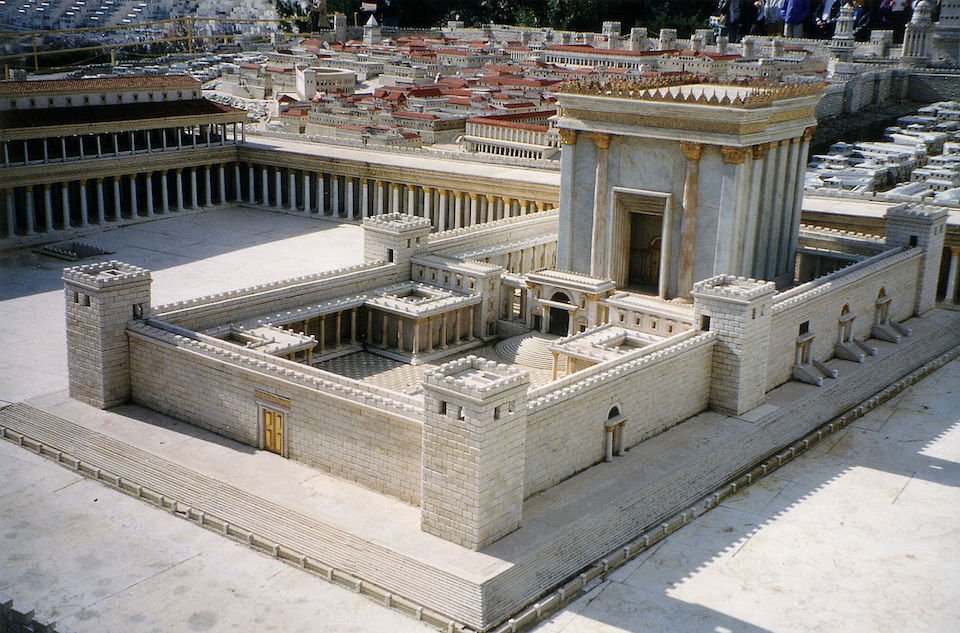
The Romans then pulled down every single stone, and used a plow to rake the dirt in the temple area so that they could get at the melted gold. The siege of Jerusalem had lasted 143 days. By 73 A.D., all traces of a Jewish nation were completely gone.
That event marked the end of a Jewish state, and the end of Israel, until modern times. Jerusalem changed hands again and again as it was conquered repeatedly. History tells us that during its long history, Jerusalem has been attacked 52 times, captured and recaptured 44 times, besieged 23 times, and completely destroyed twice. The oldest part of the city was settled in the 4th millennium BC, making Jerusalem one of the oldest cities in the world. It was May 14,1948, before Israel became a nation again.
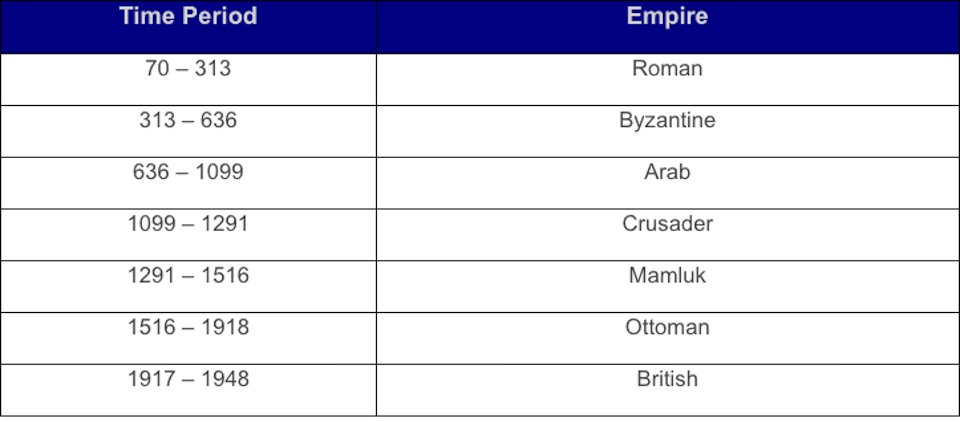
He was so right…
45 He entered into the temple, and began to drive out those who bought and sold in it, 46 saying to them, “It is written, ‘My house is a house of prayer,’ but you have made it a ‘den of robbers’!”
The temple at Jerusalem was beautiful and built by Herod the Great. Jesus taught there during His final week. Mark 11:11 tells us that the cleansing of the temple happened the following day. Jesus entered into the temple at Jerusalem and began to drive out those buying and selling there as well as the money changers. He said, “It is written, My house is a house of prayer, but you have made it a den of robbers!”
47 He was teaching daily in the temple, but the chief priests, the scribes, and the leading men among the people sought to destroy him. 48 They couldn’t find what they might do, for all the people hung on to every word that he said.
Jesus began to teach daily in the temple, but now the chief priests, the scribes and the leading religious people sought to destroy Him. Still, the people were too close to Jesus and they eagerly listened to Him. The man they wanted to kill so badly, sat teaching right in front of them, yet they could not do anything about it because of the crowds. The friction is building. More next week.
This concludes today’s chapter of our ongoing Bible Study. Thank you for participating and being a part of Refreshing Hope! To complete this study, we invite you to test your knowledge with the accompanying quiz!

This blog post has an accompanying Bible quiz: Luke Chapter 19

